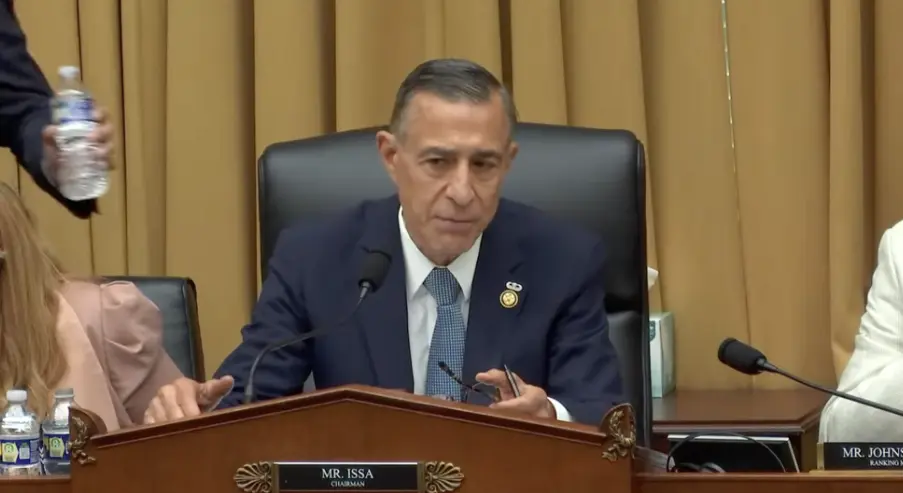WASHINGTON, D.C. – While the Trump administration continues to respond to the legal firestorm challenging many of the president’s executive actions, a House committee spoke with federal judges Tuesday about the proposed fiscal year 2026 federal courts budget.
The judicial branch is under increased scrutiny from Republicans in recent months as President Donald Trump has repeatedly leveled accusations of judicial activism against judges who have ruled against his administration. Yet while federal courts may be unpopular with some demographics at the moment, even Rep. Darrell Issa, R-Calif., asked his fellow subcommittee members to consider an expansion of the courts.
“As we speak of activist judges, we also speak of the need to expand the court to eliminate a backlog that now exceeds 600 cases on average per judge,” said Issa, chairman of the House Judiciary Subcommittee on Courts, Intellectual Property, Artificial Intelligence and the Internet.
Issa thanked the called witnesses for the day, 7th U.S. Circuit Court of Appeals Judges Amy St. Eve and Michael Scudder, as well as “dozens” of other federal judges who have relinquished their full-time seat while continuing to work part-time to help meet the needs of the court. Their continued sacrifice is “the only reason that the court has managed to continue to function, and it will not function for long with the increased tempo unless we do our job,” Issa said.
Issa raised the possibility of an expansion of the court immediately following his appeal to the Supreme Court to invalidate a second injunction from Boston Judge Brian Murphy. In April, Murphy had issued a nationwide injunction against the administration’s attempts to deport noncitizens to other countries besides their country of origin. The Supreme Court temporarily stayed the injunction, but Murphy issued a second case-specific injunction in May and said Monday it still stands.
“Today, I call on the U.S. Supreme Court to act within minutes to stay the second order, lest, and by the way to prohibit a third, fourth and fifth order in advance. The Supreme Court cannot be effective if they have to effectively keep up with the speed of a judge, signing things coming off a computer probably written with chatgpt,” Issa added.
Due to tighter budgets, most of the federal courts Defender Services have maintained a hiring freeze for the past two years. Some of their technology has well-exceeded its intended lifetime and cyber attacks on courts’ IT systems are becoming increasingly common.
“In recent years, we’ve experienced serious breaches of our Case Management and Electronic Case Filing system,” said Scudder, who is also chair of the IT committee for the Judicial Conference of the United States. “More recently, we witnessed a ransomware attack on a federal public defender’s office. These events resulted in the loss of sensitive information and delays in judicial processes.”
Cyber security has now become one of the judicial branch’s “top priorities” due to some of the breaches that have occurred. several breaches that have occurred.
In addition, judges have seen increased personal threats in recent years, meaning physical court security also needs support and Rep. Jamie Raskin, D-Md., cited a statistic from the U.S. Marshals Service highlighting how they’ve risen under the second Trump administration.
“Trump’s ad hominem rhetoric against individual judges has helped fuel an increase in threats to judicial security,” Raskin said. “According to the US Marshal Service, 197 judges were threatened from early March to late May this year, more than double the number of judges that had been threatened in the front in the prior five months.”
For these reasons and others, St. Eve, who chairs the conference’s budget committee, said the branch is requesting $9.4 billion for fiscal year 2026.
“I understand that the fiscal year 26 budget we have put forward is a large one, and that this is a challenging budget environment, but it is necessary to support the fair, efficient and secure administration of justice,” St. Eve told the subcommittee.
She urged committee members to see the request in light of some of the budget constraints the branch has recently faced.
Republicans’ questions mostly focused on the proper role of the judiciary in the three-branch system established by the Constitution; Democrats’ questions often centered on keeping the judiciary independent and able to act free from political pressures or safety concerns.
